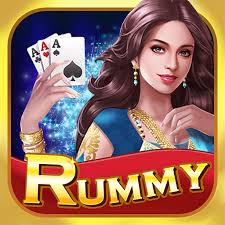Rummy Story, Rummy is a game that combines skill, strategy, and a bit of luck, and its rich history reflects the evolution of gaming across cultures. From its origins in the 19th century to its digital adaptation in the 21st century, the story of rummy is a fascinating journey of tradition meeting modernity. This article explores the origins of rummy, its development through the ages, and how it has transformed into the popular online phenomenon we see today.
Origins and Historical Roots
Early Beginnings
The origins of rummy are somewhat ambiguous, with several theories about its inception. One popular belief is that rummy evolved from traditional card games played in various cultures. Some historians trace its roots back to the Mexican game “Conquian,” which was played with a 40-card deck and involved melding cards into sets and runs.
The Birth of Modern Rummy
By the early 19th century, rummy began to take shape into a game recognizable today. It is believed that the game was brought to the United States by immigrants, where it evolved into various forms. One of the most popular versions, “Gin Rummy,” was developed by Elwood T. Baker and his son, Robert, in 1909. Gin Rummy quickly became a household name due to its fast-paced gameplay and strategic depth.
The Rise of Rummy in Popular Culture
The Traditional Era
Rummy gained significant popularity in the early to mid-20th century. It became a staple in social gatherings, family game nights, and even in competitive card game tournaments. The simplicity of the game, combined with its strategic elements, made it a favorite among players of all ages.
Rummy in India
In India, rummy has a deep cultural significance and has been played for generations. It is often associated with festivals, family gatherings, and social events. The Indian version of the game, which involves two decks of cards and joker cards, has become immensely popular and is an integral part of Indian gaming culture.
The Digital Transformation
Emergence of Online Rummy
The turn of the 21st century marked a significant shift with the advent of online gaming. Rummy was among the first traditional games to make its way into the digital realm. Online platforms allowed players to enjoy the game from the comfort of their homes, introducing new features such as virtual tables, multiplayer options, and real-time play.
The Rise of Mobile Apps
With the proliferation of smartphones, rummy apps became a game-changer. Mobile apps brought rummy to a global audience, offering convenience and accessibility. Players could now engage in rummy games anytime, anywhere, and participate in tournaments with players from around the world. Notable apps like RummyCircle, Junglee Rummy, and Adda52 Rummy gained popularity, providing a seamless gaming experience and real-money rewards.
The Modern Era of Rummy
Competitive Gaming and Tournaments
In recent years, online rummy has evolved into a competitive sport with various tournaments and cash prizes. Major platforms host regular events and competitions, attracting skilled players and enthusiasts. These tournaments offer substantial prize pools and have contributed to the game’s growing recognition as a legitimate competitive activity.
Social and Community Aspects
Modern rummy platforms have also focused on building communities and social interactions. Features like chat rooms, leaderboards, and social sharing options have enhanced the gaming experience. Players can connect with friends, join clubs, and participate in community-driven events.
Challenges and Future Prospects
Legal and Regulatory Issues
As rummy has transitioned to online platforms, it has faced legal and regulatory challenges. The game’s classification as a skill-based game versus a game of chance has led to varying regulations across different regions. Ensuring compliance with local laws and maintaining fair play standards remains a priority for online rummy platforms.
Technological Innovations
Looking ahead, technological advancements such as virtual reality (VR) and augmented reality (AR) may further transform the rummy experience. These technologies could offer immersive gaming environments and new ways to engage with the game.
Conclusion
The story of rummy is a testament to the enduring appeal of card games and their ability to adapt to changing times. From its origins in traditional card games to its modern incarnation as a popular online and mobile game, rummy has evolved while retaining its core elements of strategy and skill. As the game continues to grow and innovate, it remains a beloved pastime that bridges generations and cultures. Whether played with a deck of cards or on a smartphone, rummy’s legacy is one of enduring charm and adaptability.




